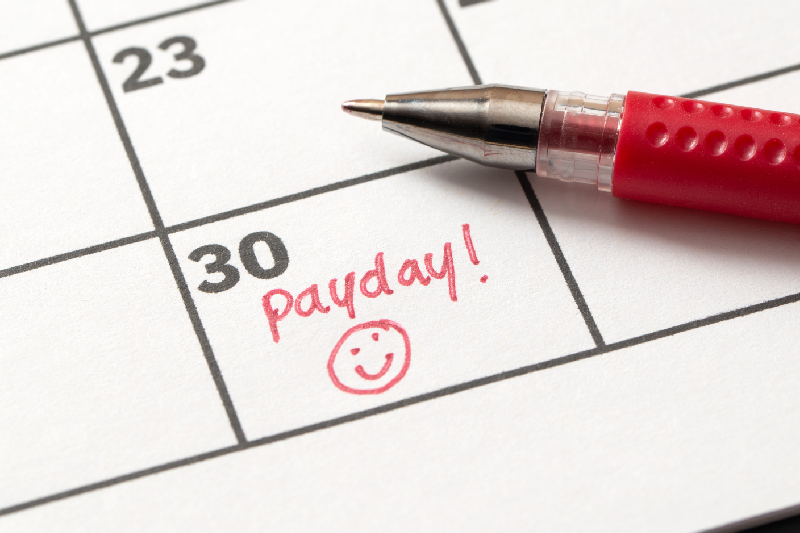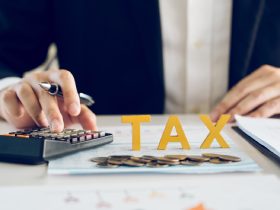As the owner of a limited company, you’re legally separate from your business, with the “limited” part referring to the way in which personal liability is limited.
Great.
But what does this actually mean for you in a practical sense? Are you an employer or employee? Or both? And, the biggest question of all: how are you supposed to pay yourself?
We’ll break it all down – including how to be as tax-efficient as possible.
Do I run a limited company?
A limited company is a type of business which is legally distinct from the individuals who own and run it. You own and run a limited company if you needed to register the business with Companies House when you set it up (rather than registering with HMRC). You’ll be a company shareholder, which means you literally own a share (or all) of the company, and probably also a company director.
This idea of the legal relationship between you and your business is key, impacting such things as how you pay tax, how you claim expenses, and, yes, how you pay yourself.
Being a separate legal entity to your business means you cannot be held personally liable for any debts or issues which arise, and so you’re protected (along with all your assets).
Can I take money out of my limited company?
Yes, but it’s complicated. A consequence of the business being its own entity is that any profits technically belong to it, rather than you as the owner.
This is different from how it works with a sole trader, who is able to keep all of their after-tax profits because they and their business are considered one and the same (in other words, there’s no legal distinction).
What are my options?
So, you’re not allowed to simply take money out of your company like a sole trader can. What you are allowed to do, however, is formally pay yourself, and there are a couple of different ways you can go about doing this.
Pay yourself a salary and dividends
This method is probably the most stable, guaranteeing you a regular stream of income throughout the year. It’s up to you how much you take as a salary, and how much you leave in the pot for dividends, but there are a few things to consider.
If you’re a director, you’re technically an employee of your own limited company, and both employers and employees are required to pay National Insurance Contributions (NICs) on salary payments.
To save as much tax as possible, you might want to pay yourself a salary which is below the threshold for paying National Insurance. You could then take the rest of your income as dividend payments. There’s no National Insurance contributions to pay on these, and they’re taxed at a different rate to your salaried income.
Your salary can even be below minimum wage, as directors are considered ‘office holders’ as opposed to regular employees.
It’s important to remember: You can only take dividend payments if you’re also a shareholder in the business and the business has made a profit.
Take out a director’s loan
Alternatively, you might choose to take out a director’s loan. This is when you “borrow” money from your business with the intention of repaying it. As such, a director’s loan is not the same as money taken out of your business to, for example, pay yourself a salary or reimburse yourself for a business expense.
It’s not really appropriate to class them as a source of personal income because they should really only ever be a temporary measure, but it can be useful if you ever need it.
There’s currently no restriction on how much you’re able to borrow, but there are tax implications!
Tax and director’s loans
Tax can affect director’s loan accounts in several ways. If you ever owe the company more than £10,000, the amount automatically becomes a Benefit in Kind, and you’ll pay income tax on the value of the benefit. As your “employer,” your limited company will also make National Insurance contributions on the benefit too.
When it comes to taking out a loan of £10,000 or below, any tax on this is wholly dependent on when (and if) you repay it.
For example, companies must pay Corporation Tax on an outstanding director’s loan if it isn’t repaid within 9 months of the end of the financial year in which it was taken out.
If you wish to avoid paying tax altogether, you shouldn’t take out anything above £10,000, and you should make sure to repay any loans you do take out before the deadline.
What’s the most tax-efficient way to pay myself?
Okay, so… what should you do?
Overall, if you’re looking to be as tax-efficient as you can, your best bet is probably to pay yourself a small salary and top it up with dividends.
But, this really does depend on your circumstances, such as any other income you might have and what your cash flow is like throughout the year – both personal and business!
A good accountant will help you understand your options, and ensure you’re making the right choice based on your unique situation.
Find more help in our online accounting hub, and learn more about how to find the right accountant for your business.








